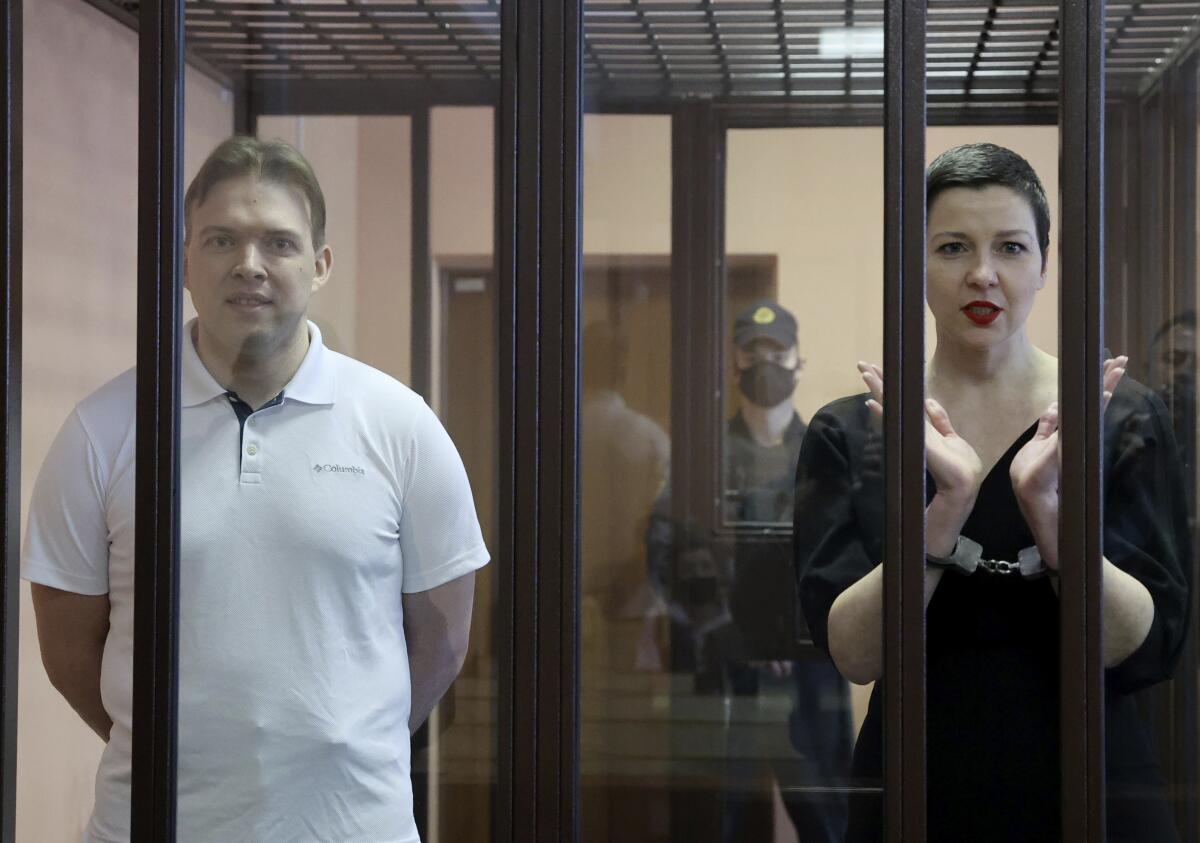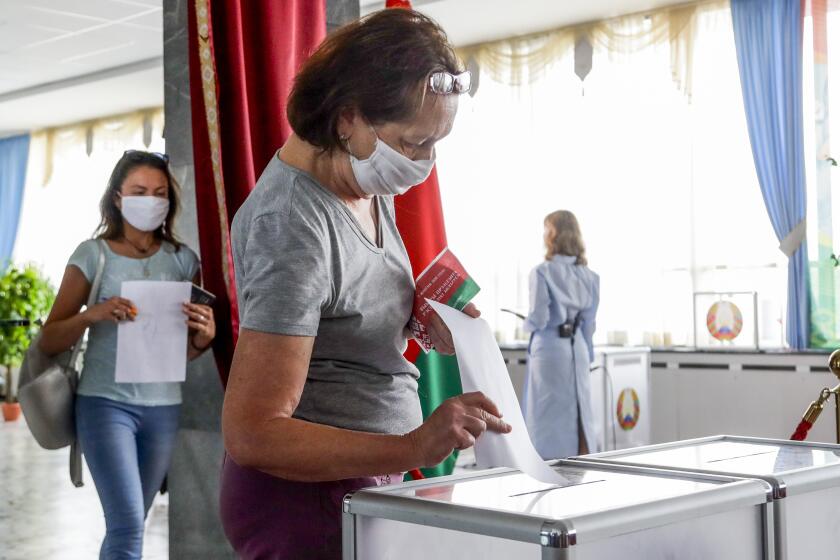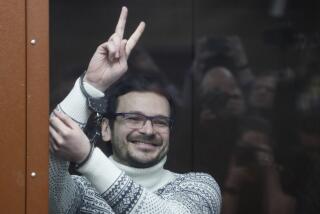Belarusian opposition activists given lengthy prison terms as crackdown continues

- Share via
KYIV, Ukraine — A court in Belarus on Monday sentenced two leading opposition activists to lengthy prison terms, the latest move in the authorities’ relentless crackdown on dissent in the wake of last year’s anti-government protests.
Maria Kolesnikova, a top member of the opposition Coordination Council, has been in custody since her arrest in September 2020. A court in Minsk, the Belarusian capital, found her guilty of conspiring to seize power, creating an extremist organization and calling for actions damaging state security, and sentenced her to 11 years in prison.
Lawyer Maxim Znak, another leading member of the Coordination Council who faced the same charges, was sentenced to 10 years in prison.
Kolesnikova, who helped coordinate months-long opposition protests that erupted after an August 2020 presidential vote, resisted authorities’ attempts to force her to leave the country.
Kolesnikova and Znak stood trial behind closed doors, with their families allowed to be present only at the Monday’s sentencing hearing.
“For many, Maria has become an example of resilience and the fight between good and evil. I’m proud of her,” Kolesnikova’s father, Alexander, told the Associated Press on Monday. “It’s not a verdict, but rather the revenge of the authorities.”
The diversion of a Ryanair flight by Belarus, leading to the arrest of a dissident on board, has sparked outrage in the West and calls for sanctions.
Belarus was rocked by months of protests fueled by President Alexander Lukashenko’s election to a sixth term in a presidential election widely seen as rigged. He responded to the demonstrations with a massive crackdown that saw more than 35,000 people arrested and thousands beaten by police.
Kolesnikova, 39, emerged as a key opposition activist, appearing at political rallies and fearlessly walking up to lines of riot police and making her signature gesture: a heart formed by her hands.
Kolesnikova spent years as a flutist in the nation’s philharmonic orchestra after graduating from a conservatory in Minsk and studying Baroque music in Germany.
In 2020, she headed the campaign of Viktor Babariko, the head of a Russian-owned bank who made a bid to challenge Lukashenko but who was barred from the race after being jailed on money-laundering and tax-evasion charges that he dismissed as politically motivated. Babariko was sentenced to 14 years in prison two months ago.
Poll workers in Belarus are coming forward with details of vote-rigging in the Aug. 9 election that has kept President Alexander Lukashenko in power.
Kolesnikova then joined forces with former English teacher Sviatlana Tsikhanouskaya, who was running in place of her jailed husband, Sergei, an opposition blogger, as the main candidate against Lukashenko, and Veronika Tsepkalo, the wife of another potential top contender who had fled the country fearing arrest.
The three appeared together at colorful campaign events that were in stark contrast to Lukashenko’s Soviet-style gatherings.
Shortly after the election, Tsikhanouskaya left Belarus under pressure from the authorities. She is currently in exile in Lithuania.
In September 2020, as Belarus was shaken by mass protests, the largest of which drew up to 200,000 people, Belarusian KGB agents drove Kolesnikova to the border between Belarus and Ukraine in an attempt to expel her from the country. In the neutral zone between the two countries, Kolesnikova managed to rip up her passport, broke out of the car and walked back into Belarus, where she was immediately arrested.
News Alerts
Get breaking news, investigations, analysis and more signature journalism from the Los Angeles Times in your inbox.
You may occasionally receive promotional content from the Los Angeles Times.
Just before the start of her trial last month, Kolesnikova said in a note from prison that authorities offered to release her from custody if she asked for a pardon and gave a repentant interview to state media. She insisted she was innocent and rejected the offer.
Speaking to the AP on Monday, Tsikhanouskaya described Kolesnikova’s ripping up of her passport as “a historic deed.”
“Along with [the passport], she tore apart all the plans of the regime,” Tsikhanouskaya said.
“The regime would want to see Maxim and Maria broken and weakened,” she added. “But we see our heroes [as] strong and free inside. They will be free much earlier. Prison terms invented for them shouldn’t scare us — Maxim and Maria wouldn’t want that. They would want us to remember how Maria smiles and to listen to Maxim singing.”
More to Read
Sign up for Essential California
The most important California stories and recommendations in your inbox every morning.
You may occasionally receive promotional content from the Los Angeles Times.












